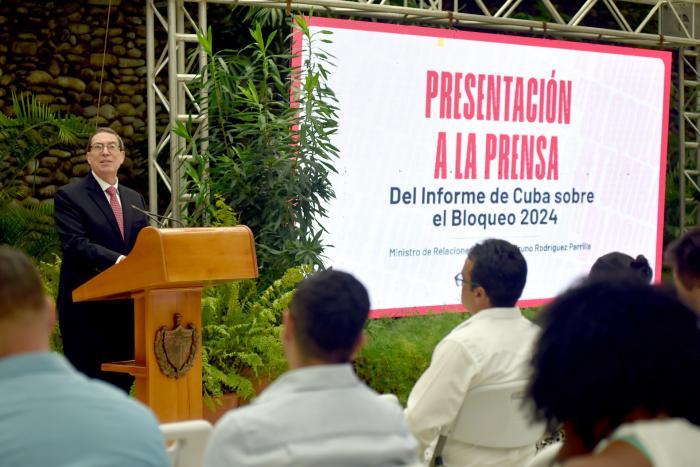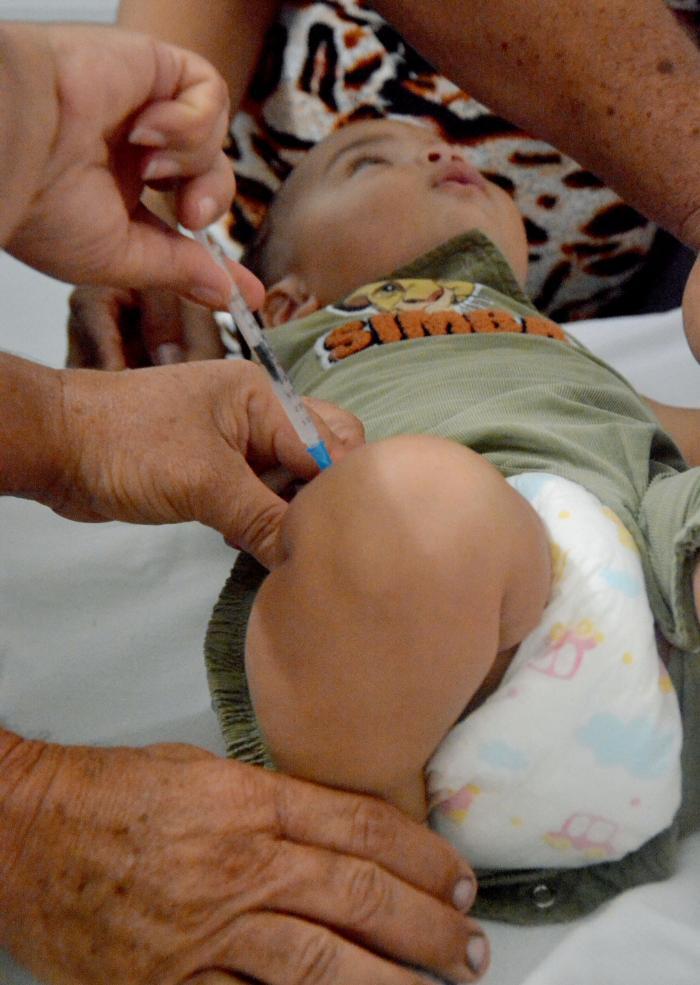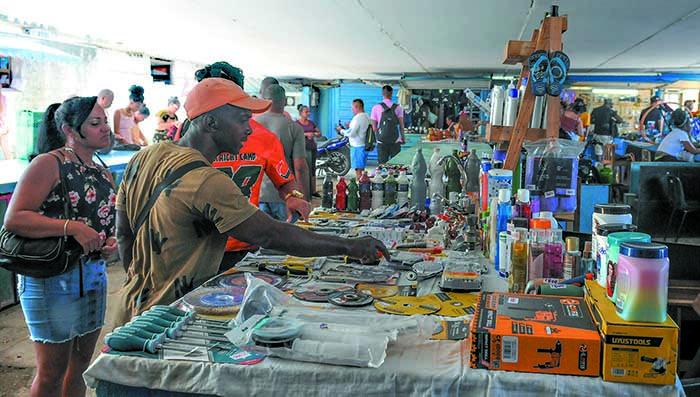

Photo: Omara García (AIN)
In the last 30 years, Marilín Peña Pérez has undergone several operations for the acute myopia she has suffered from since she was eight years old. The cornea of the popular educator and sociologist at the Martin Luther King Memorial Center was flattened, it is no longer concave, so she needs more advanced treatments with special equipment that Cuba has not been able to access, because they have a high component of U.S. technology and their sale to the country is prohibited.Marilín must wear glasses with very high cylinders, which are difficult to carve. In addition, as a result of so many operations, she developed glaucoma, which has made her dependent on three medications in drops to regulate her eye pressure. These drugs are no longer available in our network of pharmacies in recent years, due to the impossibility of acquiring them directly in the U.S., because of the high costs in distant markets and the integral effect of the blockade on the country's purchasing capacity.This story is repeated throughout the length and breadth of the Island. The names, the ages, the suffering, and even the sector change, but the indelible crack is there, permeating the living conditions and development of Cubans. *****From March 1, 2023 to February 29, 2024, the U.S. blockade caused damages and material losses to Cuba estimated in the order of 5 billion 56.8 million dollars, which means an increase of 189.8 million dollars with respect to the figure reported in the previous report.This represents an approximate damage of more than 421 million dollars a month, more than 13.8 million dollars a day, and more than 575,683 dollars in damages for each hour of blockade.At current prices, the accumulated damages during more than six decades of application of this policy amount to 164,141.1 million dollars. If we take into account the behavior of the dollar against the value of gold on the international market, the blockade has caused quantifiable damages of more than one trillion 499,710 million dollars.This was stated this Thursday by the member of the Political Bureau and Minister of Foreign Affairs of Cuba, Bruno Rodríguez Parrilla -when presenting to the national and foreign press the updated report on the damages caused by the longest and most comprehensive blockade in history-, who argued that, if the blockade had not existed, it is estimated that Cuba's GDP could have grown by around 8% in 2023.These data show that the current challenges of the Cuban reality would have a better and easier solution if Cuba could have at its disposal the substantial resources of which the blockade deprives it.In the period covered by the analysis, US actions focused on identifying and pursuing the main sources of income of the Cuban economy, in the strict application of the provisions of the Helms-Burton Act, including those stipulating its extraterritorial scope.In this sense, the unilateral measures with the greatest impact on the Cuban population and economy remained unchanged, thus reproducing and aggravating the effects of this unilateral coercive system.Among the latest steps taken by the White House Administration, the Foreign Minister summarized the discontinuation, in May 2024, of the unjustified practice of labeling Cuba as a State that does not fully cooperate with that country's anti-terrorist efforts.That qualification, he said, constituted one more slander, but with no practical impact, since it did not entail unilateral coercive economic measures. That is to say, this decision did not imply the easing or lifting of any of the measures that are part of the blockade, nor of the additional ones that cause the presence of the Caribbean nation on the list of alleged State sponsors of terrorism."It was a limited decision, which makes the permanence of Cuba on that list even more confusing and unjustifiable, in which it should never have been included," he claimed.Likewise, he argued that the U.S. announcements on the 28th of that same month, regarding some changes in the regulatory framework of the blockade referring to the private sector, did not modify the fundamental body of this policy either.They do not eliminate or modify the coercive measures that today most affect the economy and public services, but "respond to the objective of fragmenting Cuban society and punishing the non-state sector".Rodríguez Parrilla mentioned that the offensive against tourism, the allegation of non-existent sonic attacks on U.S. diplomats, as a justification to qualify Cuba as an unsafe country, the persecution of international medical cooperation agreements, among others, respond to a perfected design, aimed at preventing the entry of essential income to meet the growing needs of the population.The U.S. government dispelled any doubt as to the cruel and genocidal nature of the blockade when it used the worst moment of the Covid-19 pandemic to impose additional measures on Cubans: it reinforced the prohibition of imports such as pulmonary ventilators; it applied measures that affected the industrial scale of Cuban vaccines against the virus, and even prevented the import of oxygen from third countries.All the difficulties faced by Cuban society are not exclusively due to the blockade -the Minister of Foreign Affairs acknowledged-, "but it would be untrue not to identify it as the main obstacle to our development. No country, even with much more prosperous and robust economies, could face such a merciless aggression."It is unacceptable, he added, for the Oval Office to ignore and disregard the call of the international community to put an end to this illegal policy, reflected in the 31 resolutions adopted by the United Nations General Assembly on the need to put an end to the economic, commercial and financial blockade imposed against Cuba.THE CONSEQUENCES OF AN INHUMANE POLICYBetween January 2021 and February 2024, a total of 1,064 actions were reported by foreign banks, of refusals to provide services to Cuban entities, including transfers for purchases of food, medicines, fuel, spare parts for the National Energy System and essential consumer goods for the population.In the last four years, surgical activity has decreased considerably in the country, causing an accumulated demand for services, with a waiting list of 86,141 patients at the end of February 2024.In the period covered by the report, the Food and Agriculture Organization of the United Nations (FAO) tried to buy tractors for small producers from a supplier in Puerto Rico for a total value of 1.5 million dollars, but the manufacturer decided not to take the risk of selling to Cuba, reflecting the intimidating effect of the blockade.For the 2023-2024 school year, a deficit of 436,984 school uniforms was reported. The Cuban government subsidizes 50% of the cost of production, but the shortage of raw materials and the search for inputs in distant markets has increased their prices four to five times.Several airlines have cancelled their flights to Cuba, alleging low demand and commercial unfeasibility of operations. Such is the case of the tour operator TUI, which will not resume flights to Varadero from the Netherlands and Belgium for winter 2024/2025.Brascuba stopped producing a volume of 50.8 million cigarettes of the Rothman Fresh assortment, to the detriment of sales amounting to US$ 1,491,800, due to the impossibility of acquiring the raw material needed for the cigarette capsules.The vast majority of software systems are blocked for Cuba, the best known being communication systems such as Zoom, Slack and GitHub, among others.Restrictions have also significantly affected the activity of numerous private entrepreneurs, business owners and Cuban cooperatives. In 2023, 685 MSMEs registered losses in their management, which represented 7.2% of the total.
Related News

Presidents of Cuba and Seychelles evaluated commitments and joint perspectives

Cuba does not and will not surrender

Why is it important to vaccinate children against pneumococcus?


